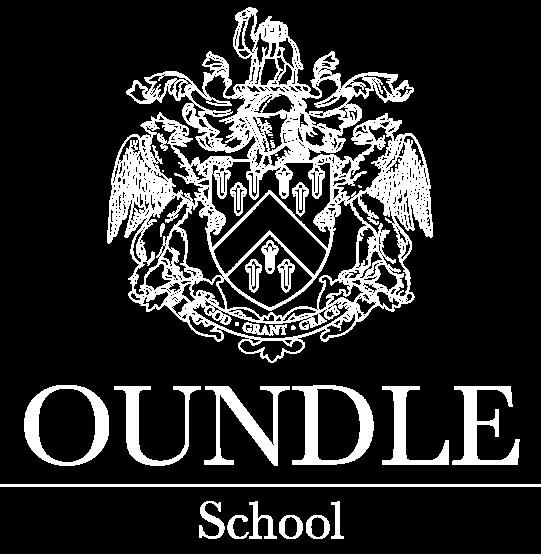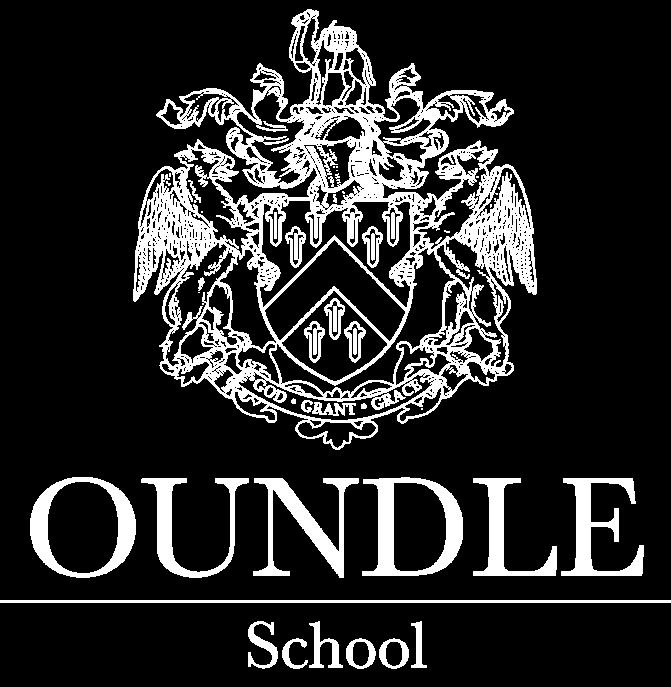

The Third Form Curriculum
2026 - 2028
“In
Welcome
At Oundle, we are deeply conscious of the significant transition pupils make as they enter the Third Form, and we regard it as a genuine privilege to teach them during this formative stage of their development. Third Formers bring an infectious enthusiasm and excitement to their learning, and our aim is to nurture that spirit while helping them establish strong foundations for the years ahead.
We intentionally keep the curriculum as broad as possible, giving pupils the opportunity to explore the most engaging aspects of a wide range of subjects and to appreciate the connections between disciplines. A balanced combination of core subjects and carefully chosen options ensures that, when the time comes to select GCSE courses, pupils’ choices remain open and unhindered. Our teaching seeks to spark curiosity by presenting subject content and concepts in stimulating, real-world contexts, providing both depth of understanding and the right level of challenge so that pupils continue to enjoy learning and experience the satisfaction of seeing their own progress.
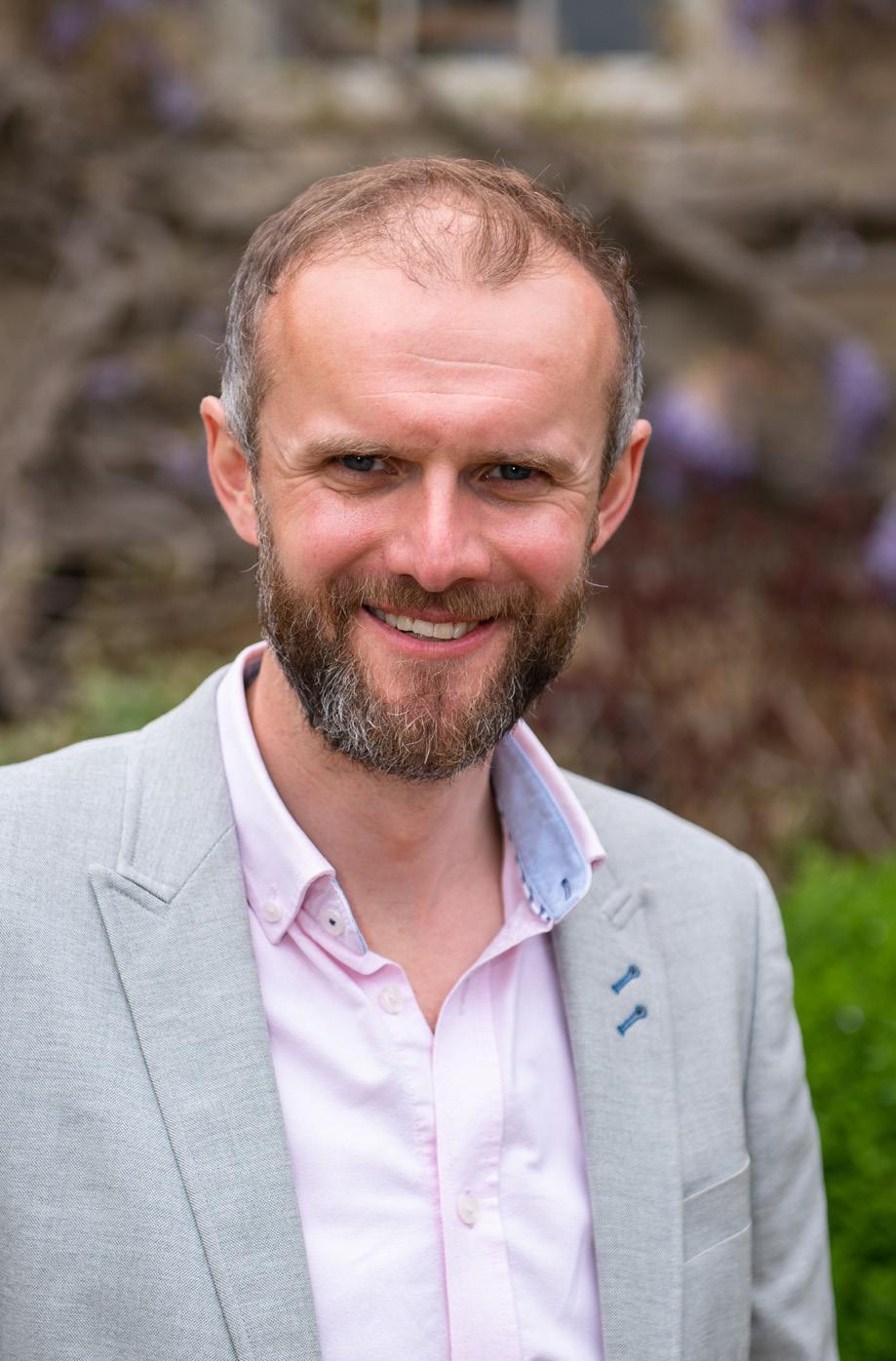
By the end of the Third Form, pupils will have engaged in an expansive range of activities, free from the pressure of time constraints. Over the course of the year, we witness remarkable growth: pupils become more independent, eager to take on responsibility, and increasingly confident in their learning. Getting to know them, spending time with them, and guiding them through this journey is a true pleasure. The Third Form is a year in which we see our pupils genuinely flourish.
Adam Baragwanath Deputy Head Academic
“With thanks to the current Third Formers for their thoughts on life at Oundle.”
The core curriculum
In the Third Form at Oundle School, all pupils study the following core subjects:
• BIOLOGY
• CHEMISTRY
• ENGLISH
• GEOGRAPHY
• HISTORY
• LATIN
• MATHEMATICS
• PHYSICS
TRIVIUM
• TPR (THEOLOGY, PHILOSOPHY AND RELIGION)
• TRIVIUM
Oundelians are intellectually ambitious and Trivium places learning for its own sake at the heart of our Third Form curriculum. There is no syllabus and no prescribed content. It is a course based on ‘interestingness’. The brief is to educate; to introduce pupils to ideas and culture, to sow seeds and to broaden the educational experience. Whilst one class is studying protest art, another may be learning about the Holocaust, London tube, the basics of Psychology or the principles of the British legal system.
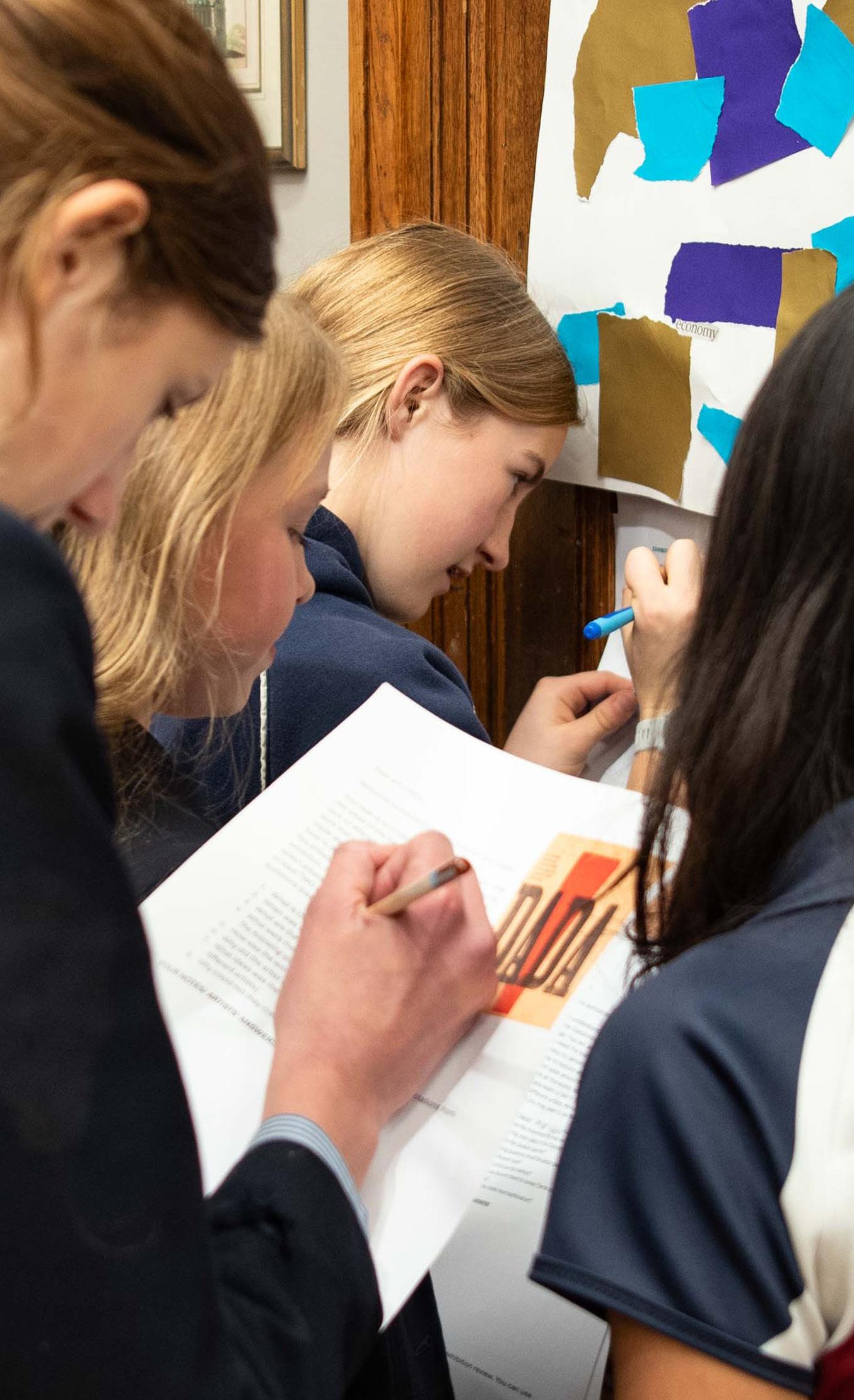
Option
subjects
Pupils choose three subjects from:
• ART
• COMPUTER SCIENCE
• DET (DESIGN, ENGINEERING & TECHNOLOGY)
• DRAMA
• MUSIC
• PHYSICAL EDUCATION
Each of these courses runs for a full year: pupils are not able to switch between courses during the academic year, so are advised to choose carefully, aware of the content and commitment involved.
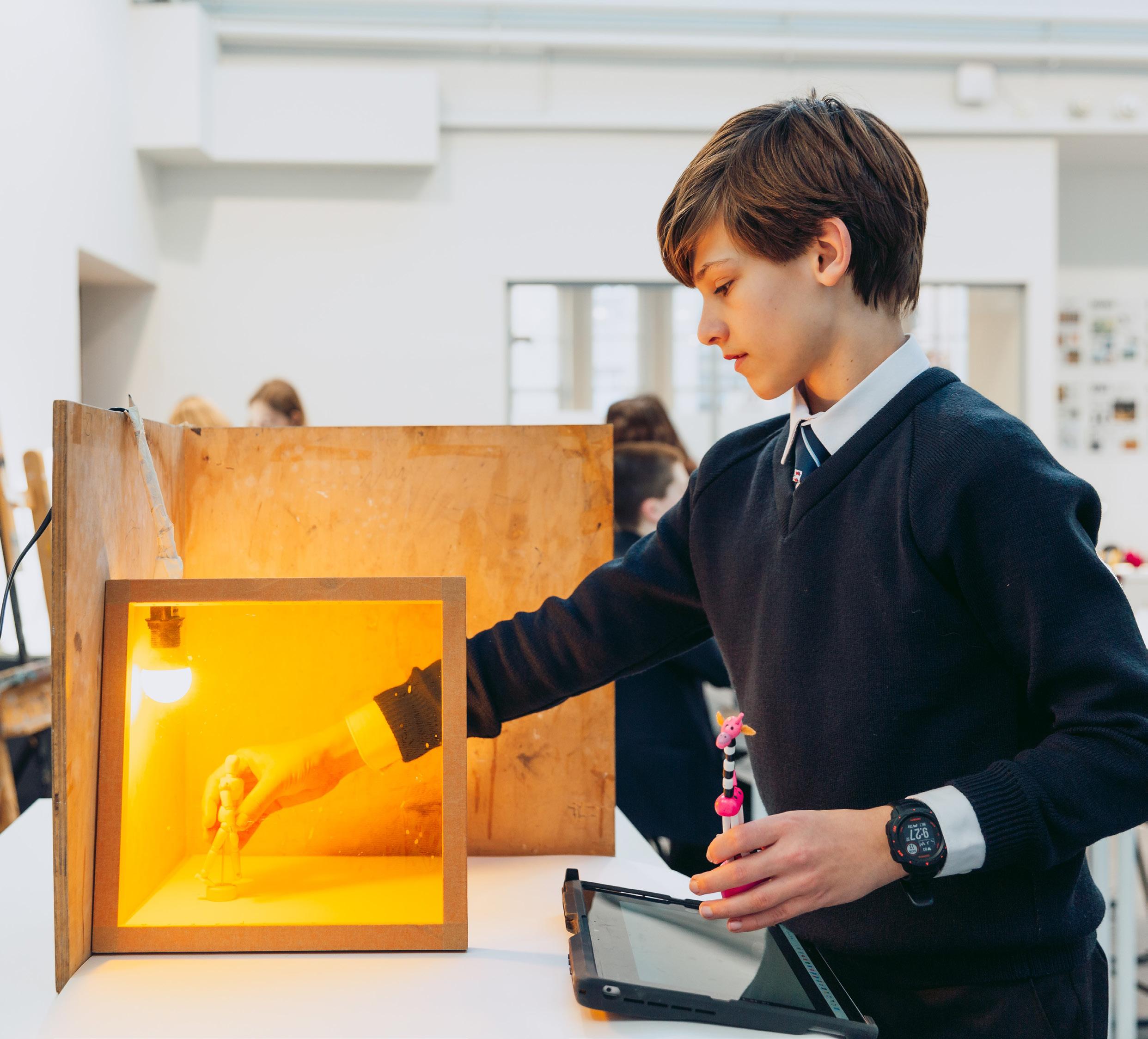
Throughout the Third Form, pupils studying Art are taught to use a wide range of processes, techniques, and materials. Teacher-led projects will focus on exploring different art forms, techniques, and styles, and encouraging pupils to develop their own artistic voice.
The Fine Art syllabus is made up of short projects allowing pupils to experience the range of approaches and media the Department offers. It is often a chance for students to rethink their abilities and discover afresh an enthusiasm for creative work. Specialist teaching of drawing encourages the development of this fundamental skill. The course provides an insight into the skills required for GCSE Art. As pupils progress through the course, they are encouraged to take risks and be ambitious. Skills of problem-solving and research, inventive playfulness and critical thinking are required and assessed. Pupils will also have the opportunity to participate in critiques and discussions to develop their critical thinking skills and deepen their understanding of the artistic process. Each project encourages pupils to look at the work of artists. We start from the premise that the best art and design comes from an imaginative and thoughtful interpretation of first-hand visual experience, informed by an understanding of historical and contemporary practice.
“The best thing for me about Oundle is the DET lab where you can often go in your free time. You have access to the best facilities and technology that you’ll find nowhere else. The technicians also provide you with great help and it feels amazing to be able to turn your imaginations into real products.”
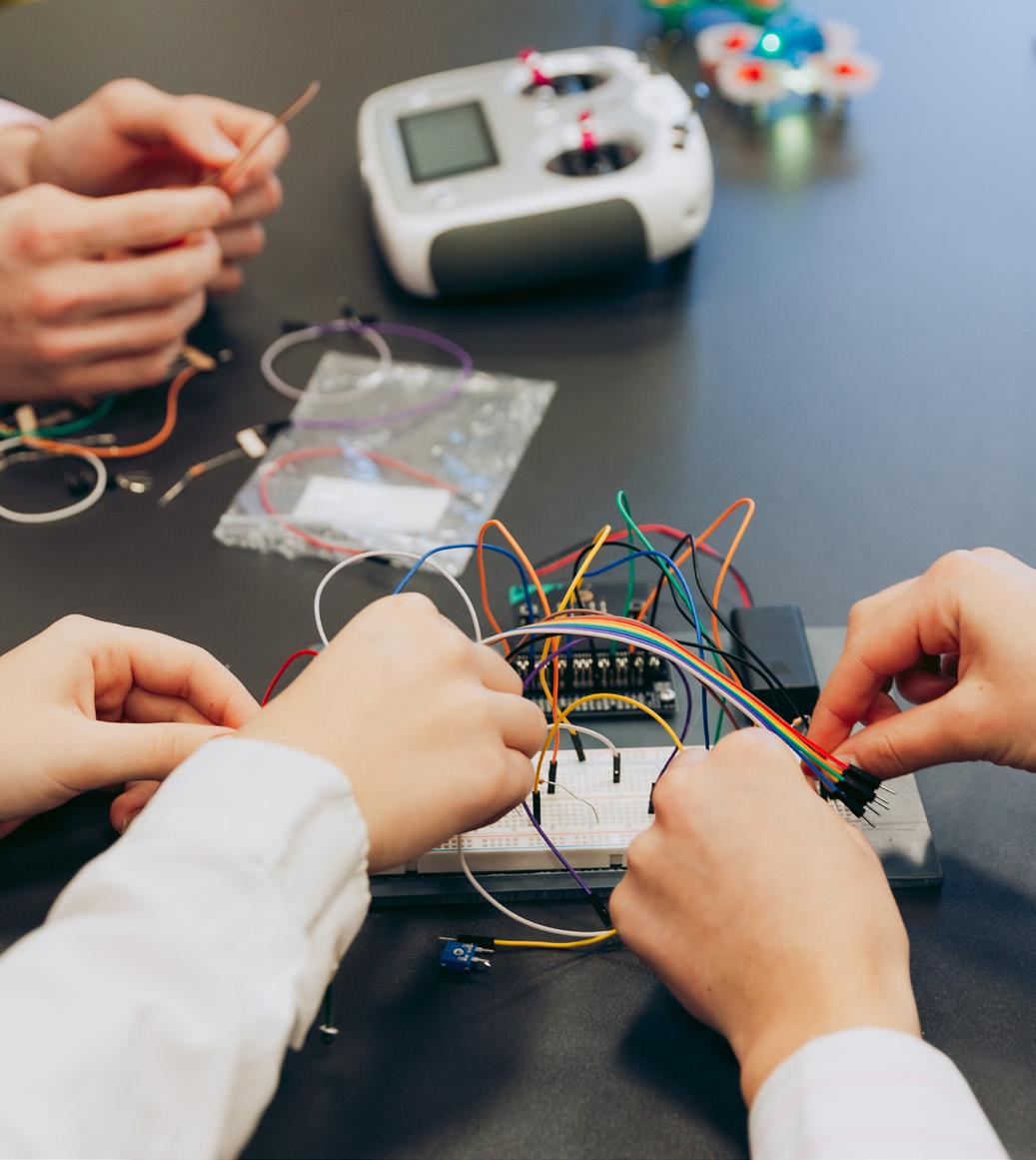
COMPUTER SCIENCE
This option is an interesting and fun introduction to Computer Science where pupils learn how to make computers do what you want them to do. This is quite different from learning how to use Word and PowerPoint. Pupils will be given the opportunity to learn to program in Python, make Raspberry Pi, code websites using HTML, CSS, and Bootstrap, count like a computer, as well as build worlds, destroy computers, live in the clouds, and understand the internet of things.
DESIGN, ENGINEERING AND TECHNOLOGY
This course introduces pupils to a broad range of creative and engineering disciplines. Their time in the Patrick Engineering Centre is organised around a series of focused projects that emphasise iterative product design, problem solving, computer-aided design (CAD), modelling techniques, and multi-material fabrication — all culminating in the creation of high-quality products. Additional assignments in the Third Form develop pupils’ skills in graphical communication, aesthetic judgement, and advanced rapid prototyping. Through these experiences, pupils build a strong foundation in the principles of design, engineering, and technology, learning how to conceptualize, develop, and manufacture contemporary products and systems across diverse fields.
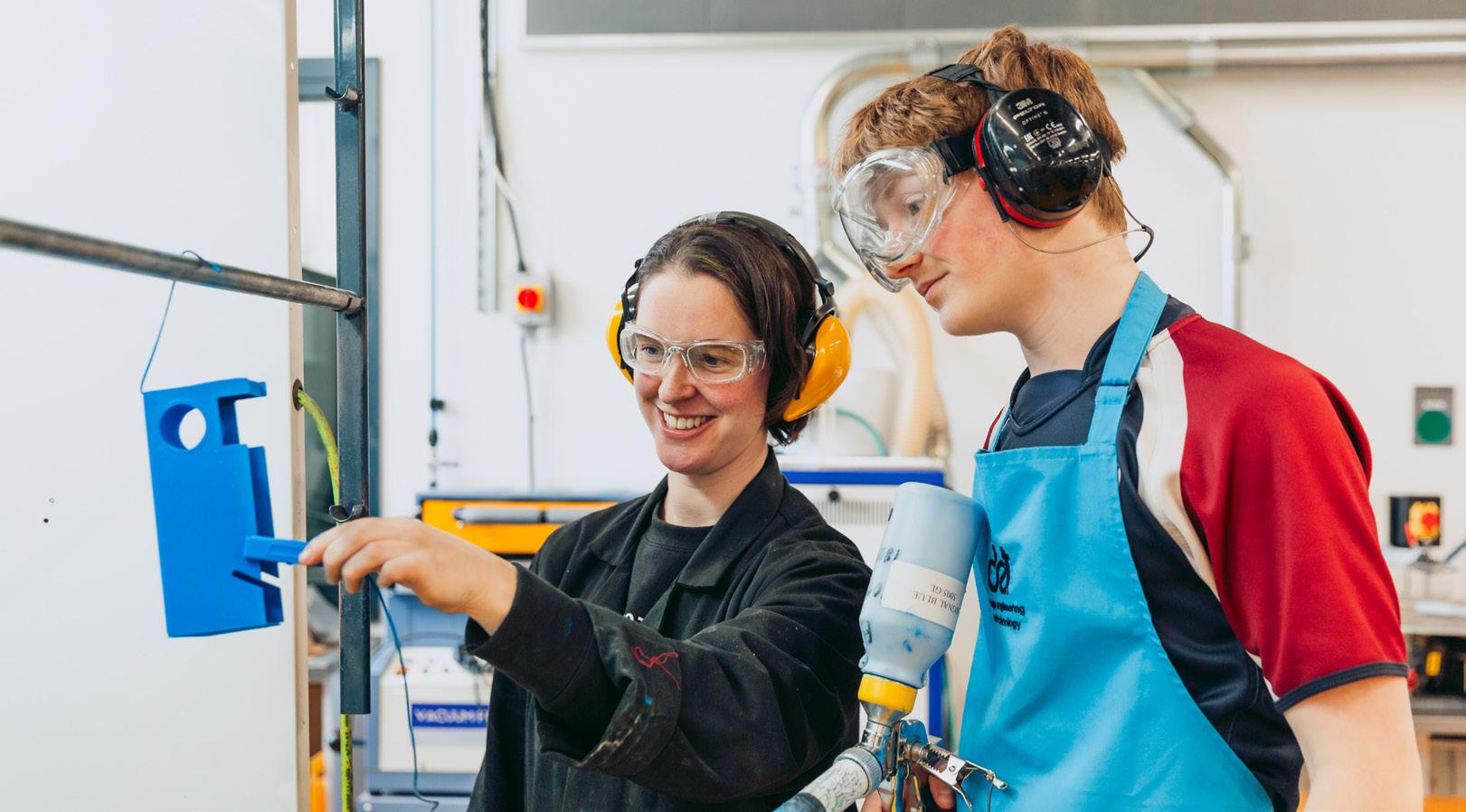
“The SciTec labs have everything you could ever want!”
DRAMA
The course introduces the key concepts of dramatic performance through practical exploration. The overall aim is to develop creativity, stimulate the imagination and encourage performance and interest in theatre. There is a strong emphasis on individual and group creativity to make work that is engaging and enjoyable for audiences, and much importance is placed on working to a project brief and time management. Communication and social skills will have a strong focus in the early part of the course, and this will lead to devised, improvised and scripted performances. Pupils will be encouraged to evaluate and analyse their own work and that of others in a creative non-critical manner.
MUSIC
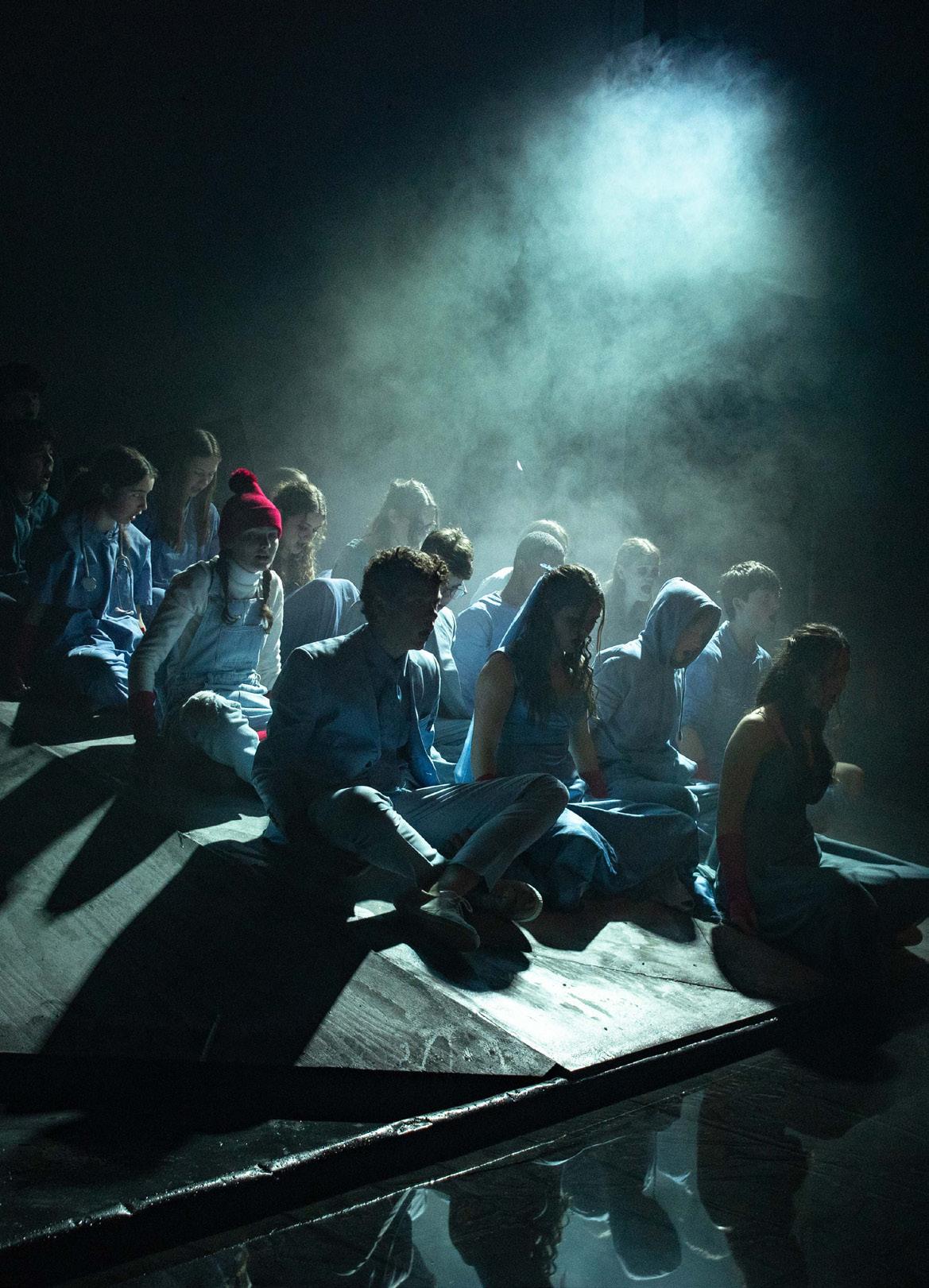
This course enables pupils to develop and hone their musical skills and interests, broaden their musical knowledge through ‘a learning by doing’ approach, and lay down a firm foundation for GCSE music. The Third Form Music course covers a diverse range of practically based topics including an exploration of Baroque and Classical styles, The Jazz Era and Popular Song. Pupils take part in class ensemble performances and undertake a number of composition projects. Pupils will also compose and engage in individual projects using music technology such as MuseScore and BandLab, with opportunities to involve themselves in aspects of music production and OSCAR radio.
PHYSICAL EDUCATION
The Department’s aim is to optimise each individual’s physical potential and develop movement skills that support lifelong participation and an active lifestyle. Pupils will follow a broad curriculum offering access to diverse sports and training methods beyond the School’s sport programme.
All pupils will complete modules in Athletic Development, swimming for personal survival and an introduction to water polo, alongside racket games, invasion games and a coaching module. These activities enhance fundamental movement patterns and motor abilities such as coordination, agility and balance, which underpin sport-specific performance. We also provide opportunities to develop values that promote wellbeing: personal growth, social interaction, preparation for active leisure, and physical qualities that improve health, fitness and movement efficiency.
Language Options
In the Third Form, pupils study two subjects from:
• ARABIC
• FRENCH
• GERMAN
• RUSSIAN
• SPANISH
• MANDARIN CHINESE
We cater for beginners’ groups as well as continuers’ groups in French, German, Classical Greek, Chinese and Spanish. Arabic and Russian are only offered as beginners’ courses. We expect pupils to continue with at least one language they have already started where possible, to enable them to make substantial progress in at least one language.
Please note that, for the languages listed above, pupils will only be eligible to study them at (I)GCSE if they have studied them in the Third Form1 Italian is available as a language option in the Fourth Form for non-native speakers, but this should only be chosen to complement the continuing study of a language from the Third Form, often as a third language.
The Arabic, Russian and Chinese Beginners’ courses are for non-native speakers and are aimed at keen linguists2 who are interested in learning other kinds of languages than the ones they have previously studied. They complement the study of European languages well.
1Exceptions may be made when there is evidence of having attained a suitable standard previously.
2It is occasionally not possible to cater for all combinations and levels of languages. We anticipate very few such problems: in such cases, pupils are contacted directly at the beginning of the Michaelmas Term at the latest.
• CLASSICAL GREEK
• ENGLISH FOR ACADEMIC PURPOSES
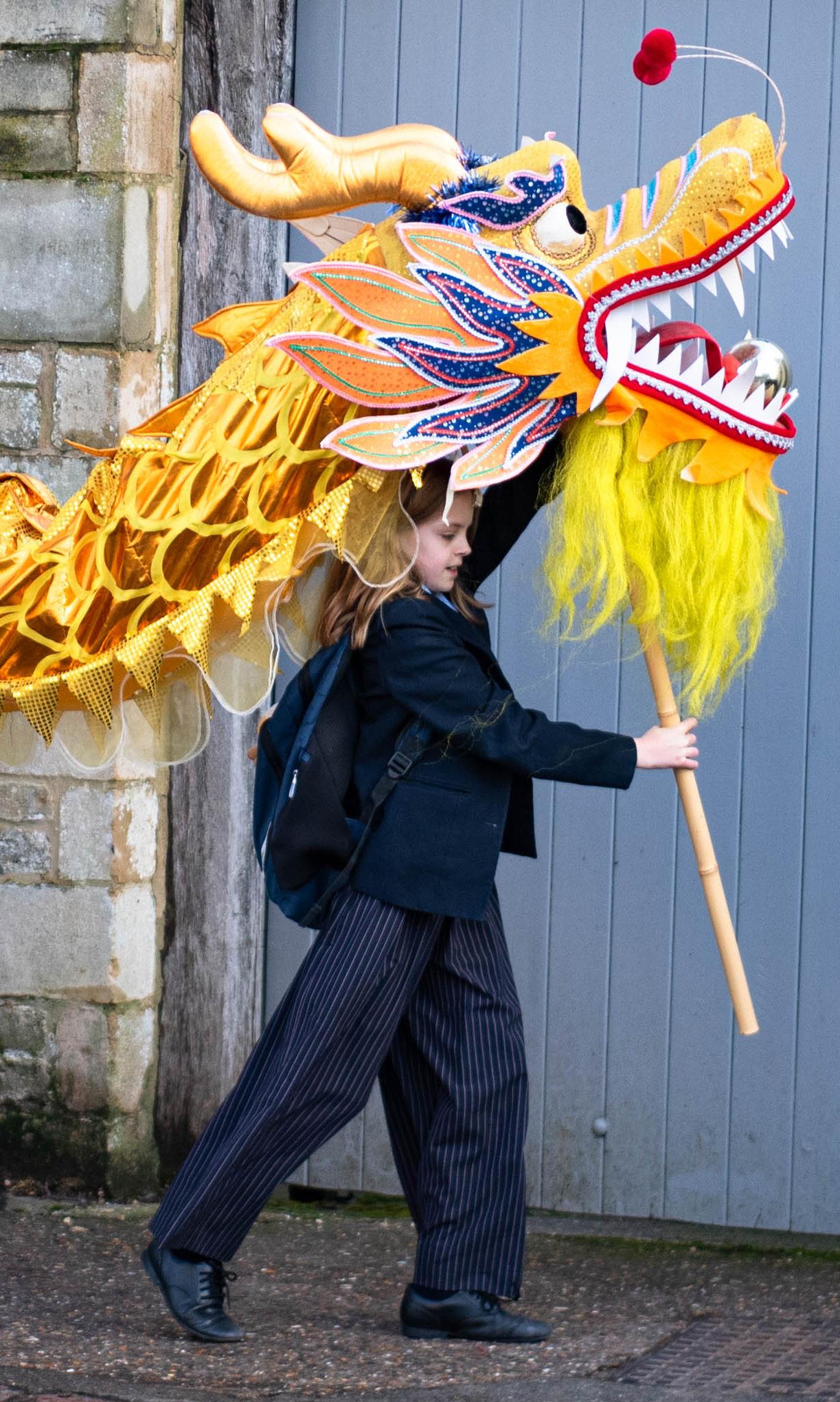
CHINESE, RUSSIAN & ARABIC
Chinese, Russian and Arabic would make an impressive addition to any CV or university application.
There is both a beginners’ course and a continuers’ course in Chinese. The continuers’ course in Chinese is for pupils who have already learnt at least 200 commonly used characters and who can apply some basic Chinese sentence structures to speaking and writing about the most familiar topics. Within the first three weeks, the continuers are assessed and placed in the best class for them. Both courses can be continued to GCSE level.
China’s importance on the world stage speaks for itself. Aspects of Chinese history and culture form part of the course, but the focus is very much on language learning. Trips to the British Museum, both to special exhibitions and to Gallery 33 (China), have been organised in the past few years. Beyond GCSE, pupils will be able to study Chinese further in the Sixth Form and several pupils go on to study Chinese at university.
Arabic is for those who would like to stand out from the crowd. There is a high demand and low supply of Arabic speakers in the West. With all that is happening in the Middle East currently, it is a language that is playing a crucial role in terms of defence and diplomacy. Pupils are able to explore this globally important language via exposure to its rich and fascinating cultures. Aspects including calligraphy, art, history and music, spanning thousands of years and 25 countries across the Middle East and North Africa, are interwoven through the taught syllabus. Very few schools offer Arabic on their timetable and pupils will progress and build their linguistic aptitude through engaging and intellectually stimulating lessons.
Pupils also have the opportunity to continue their Arabic journey by taking the Cambridge IGCSE in the Fifth Form. This is a rigorous assessment that will impress universities and employers and prepare pupils for later study of the language and work in the region if they so wish. Learning a new language with a different alphabet can certainly be challenging, but it does make success in this complex and intricate discipline extremely rewarding and gifts pupils with a unique skill for life.
Russian is an excellent choice for those who are intellectually curious and want to learn an unusual language with a different alphabet. Oundle is one of very few schools in the country to offer Russian, a language that opens the door to an extraordinarily rich culture and a part of the world that remains unknown to most in the West. Lessons are fast paced and highly interactive, with pupils following a modern course authored by our Head of Russian which enables them to make rapid progress.
With the current situation in Ukraine, it is more important than ever that young people study not only the language, but also the culture and history of the biggest country in the world. There is a real demand for Russian speakers in fields such as the media and diplomacy; there will surely be renewed opportunities in the world of business in future too. This option is not only for those pupils who want to use their language knowledge in their career, however. Russian is highly regarded as a rigorous academic subject by top universities and employers.
Please note that the course is aimed at pupils with no prior knowledge of the language.
“All of my teachers are so kind and helpful.”
“You learn so much in every lesson.”
FRENCH, GERMAN & SPANISH
Two different courses are offered for French, German, and Spanish: a beginners’ course for those who have little or no prior knowledge of the language and a continuers’ course for those who have at least one year’s previous study thereof.
The French continuers’ sets cover a large range of ability and experience. French is the most widely chosen language throughout the School and the Department offers an exciting and enjoyable Third Form course in which film clips, songs, and poems are used in the classroom alongside more traditional methods of teaching the language.
We consider that all three languages are equally important; both French and German are official languages of both the EU and the UN, whereas Spanish is spoken widely throughout South America. In Europe there are more native speakers of German than of any other language.
We strongly advise those who have previously studied one of these languages to continue with it rather than starting again, as at IGCSE all pupils are examined at the same standard irrespective of how long they have been studying the language.
With fewer schools offering German these days, Germanists are in more demand than ever. Our experience is that pupils of all abilities tackle the subject successfully and it provides a broader linguistic experience as it comes from a different family of languages to the Romance group. In addition, Spanish is identified by the British Council as the most important language for the UK’s future, considering cultural, educational, as well as economic priorities.
In all three languages the emphasis in the Third Form is very strongly on the practical skills of listening, reading, writing and speaking. From a very early stage the foreign language is used in the classroom and pupils learn to communicate on a range of everyday topics.
• In the beginners’ courses areas covered include personal information, family and pets, numbers, time, dates and weather, house and hometown, school, and holidays. Reading and writing are gradually introduced and some basic grammatical concepts such as present tense of verbs, gender and adjectives are covered. The aim is to provide a firm base on which to build in the IGCSE course in the Fourth and Fifth Forms.
• In the continuers’ course, the emphasis is likewise firmly based upon practical skills. Initially the basic topics are reviewed to ensure that the knowledge is secure, then pupils are introduced to a wider range of vocabulary and structures, including the past tense. Film and literature also form part of the content of the continuers’ courses to extend the pupils’ cultural knowledge. By the end of the year pupils should be well on the way towards IGCSE.
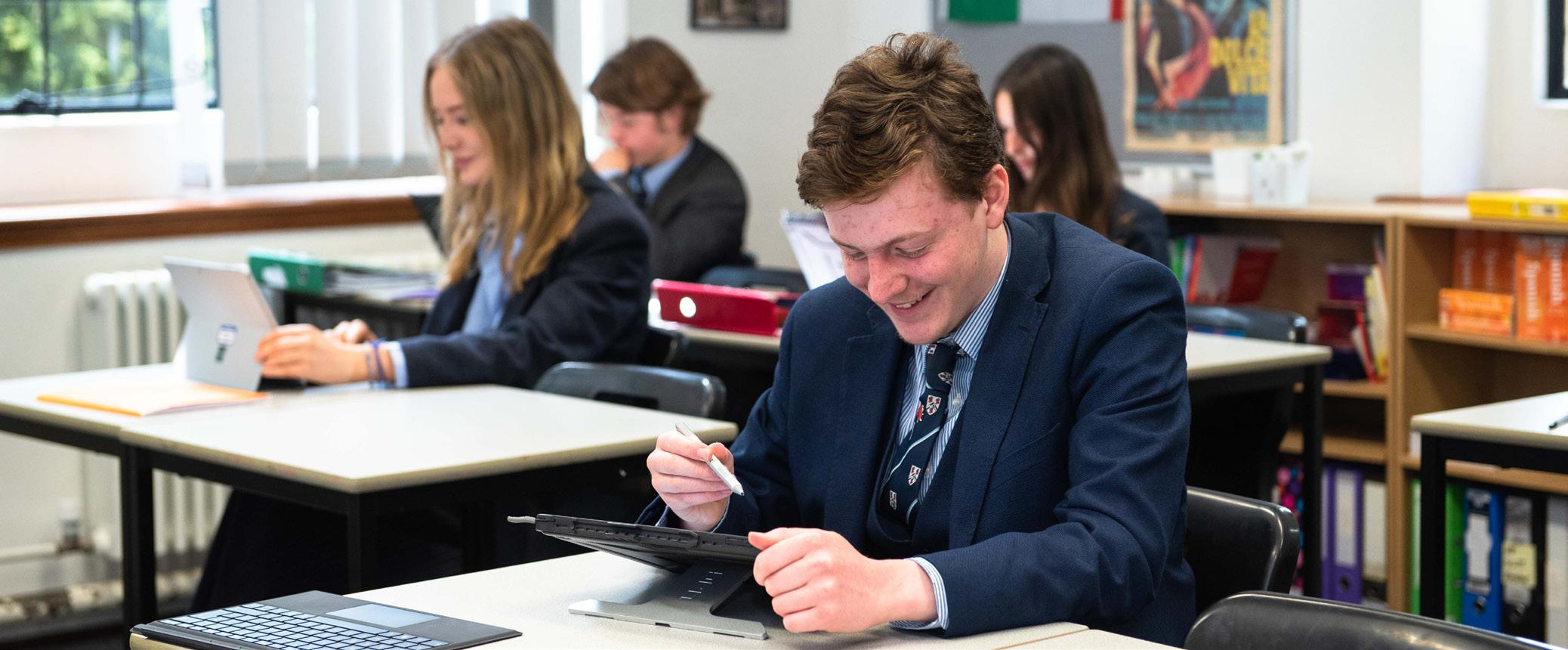
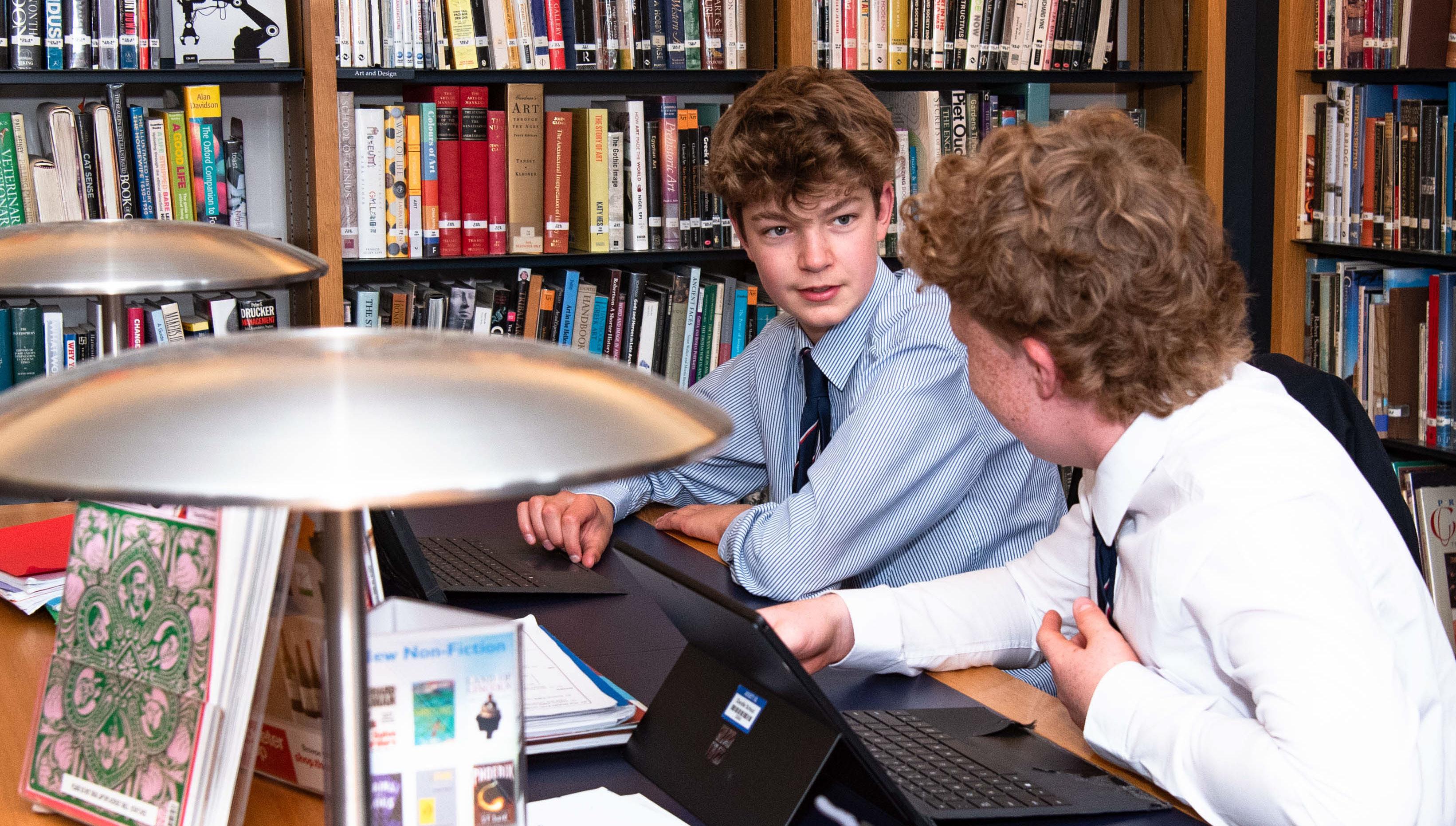
CLASSICAL GREEK
Studying Ancient Greek in Third Form is an exciting intellectual challenge, which involves not only developing ‘code-breaking’ analytical skills in deciphering the alphabet and language, but also learning about the fascinating history, culture and mythology of the ancient Greek world. There are two courses: one for complete beginners, and one for those who have studied Greek before. All sets cover a range of grammar and vocabulary (giving pupils a firm foundation for studying the language at GCSE level), as well as range of civilisation topics on ancient Greece. Those in Continuers’ Greek often experience translation of original literature such as Homer, ahead of the GCSE course and also complete enough Greek to be entered for the ICCG public examination in the summer.
ENGISH FOR ACADEMIC PURPOSES
To ensure that all pupils are able to derive maximum benefit from their Oundle education, the School uses English Language Placement tests to screen non-native speakers. The results of these assessments, together with information provided about each pupil’s education and language background, will guide decisions as to who would benefit from EAP (English for Academic Purposes) provision in place of a second Modern Foreign Language. Some non-native speakers will benefit from joining an EAP group, and pupils may indeed select this as an option in place of one of their modern language options in the Third Form. EAP lessons offer pupils the opportunity to explore advanced aspects of the English language that will support them in successful academic study across the curriculum, whilst also providing cultural enrichment to ensure full integration into the School community. If selected as an option, final suitability for EAP will be determined by the results of the screening assessments and the pupil’s education and language background. Pupils following the EAP course in the Third Form will continue to study their chosen Modern Foreign Language as one of their GCSE options in the Fourth and Fifth Forms.
